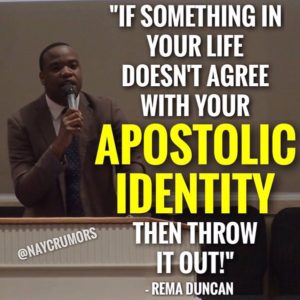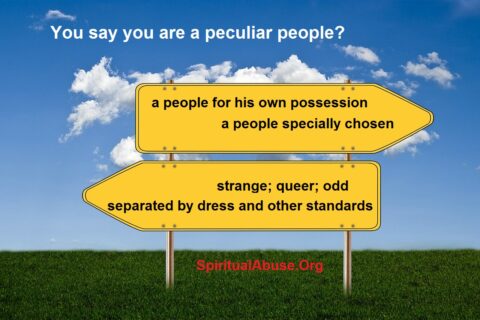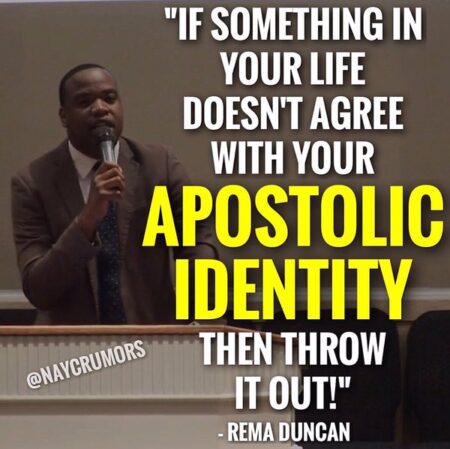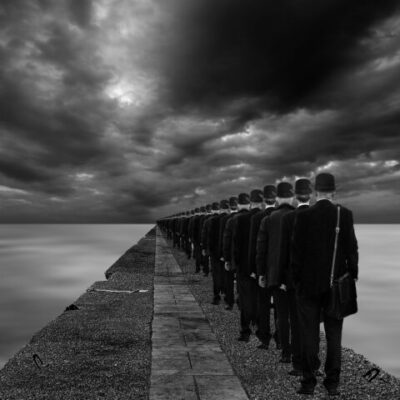Peculiar and separate. How many times did some of us hear that we were ‘peculiar people’ and were to be ‘separate’ from others? Are you aware that the meanings given these words often did not reflect their biblical meanings?

Some are proud of it. They consider it to be an honor to be called peculiar and even weird. Some boast about it. It’s a part of a so-called apostolic identity to some. They think their works make them peculiar and separate.
I recall my former pastor giving a wrong definition of the word peculiar, one which meant that we were different, on the line of odd-like. Many times it is linked to appearance, specifically outward standards. But is this what it really means?
I encourage you to look for yourself and see the true meaning. Look up the word that was translated peculiar, periousion, in Titus 2:14. You won’t find what many of us were taught. Just a quick glance at how various Bibles translate the word (EX: ‘a people for his own possession’ or ‘a people that are his very own’) will show the glaring misrepresentation of the meaning by some churches.
As to being separate, I would also encourage you to read passages in the Bible where it speaks about believers being separate from those who are not following Christ. Look at what things are shared. They are actions and things of the heart and not a dress code.
Think about it. In what way did Jesus look different than those living in Israel? How did the apostles stand out in their attire when they were spreading the Gospel? Did people in Ephesus or Corinth exclaim, “Look! I know they must be Christians. Just look at how they are dressed?”
Many trust that doing these things somehow makes them holy or brings holiness to them. This mindset can bring about great division. For instance, if I believe that a wedding ring is wrong to wear and I see you wear one, then I can easily start judging you and your walk with God, even considering you unsaved because I believe not wearing one helps keep me holy. Therefore your wearing one makes you unholy.
These wrong teachings lead many to then go in pursuit of what else they can ‘give up’ for the Lord, what else they can do to appear more holy and righteous. It can be never ending.
Didn’t the Pharisees do the exact same thing? They followed the letter of the law, even added their own long list of rules to help them and others keep God’s law. Yet Jesus said they were a people who served God with their lips, while their hearts were far from him. They were whited sepulchers, looking great on the outside, but inside there were dead bones.
We are not peculiar or separate as some suppose. Our holiness is obtained directly from God and has nothing to do with us. He alone makes us righteous and holy through our faith in Jesus. Trying to live by a set of rules can never, ever make us achieve this holiness. Trying to do so is an exercise in futility. If the law, which was given by God, could not change people and make them holy and righteous, what makes us think we can achieve this though our rules?
Being separate from the world does not mean looking different on the outside or to abstain from things like going to a ball game or movie. It goes to the heart—what makes us who we are—and THIS is what separates believers from those who do not know Christ.
Examining Teachings #1: Drunk In The Spirit?
Examining Teachings #2: Jezebel and Shamefaced
Examining Teachings #3: Peculiar And Separate
Examining Teachings #4: What Must I Do To Be Saved?
Examining Teachings #5: Faith Without Works Is Dead










